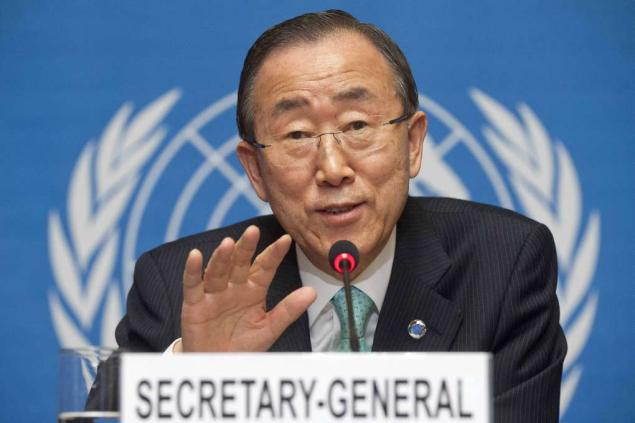 The United Nations has urged the international community to focus attention on the barriers to social well-being that millions of people face because of gender, age, race, ethnicity, religion, culture and disability.
The United Nations has urged the international community to focus attention on the barriers to social well-being that millions of people face because of gender, age, race, ethnicity, religion, culture and disability.
This call was made to mark World Day of Social Justice, which fell on Thursday, February 20. The UN General Assembly (GA) in 2009, set aside February 20 each year to encourage support for international efforts in poverty eradication, the promotion of full employment, gender equity and justice for all.
President of the GA, Mr. John Ashe in his message at the UN Headquarters, New York on the significance of the day, identified social justice and empowerment as crucial components in shaping a global sustainable and development agenda that will go beyond the 2015 Millennium Development Goals (MDGs).
“We must serve the needs and harness the capacities of all members of our global family, especially women, young, older persons and persons with disabilities, indigenous people and the poor and marginalized among us” he said.
In this vein, Mr. Ashe tasked member states to use the MDG accomplishments of the past 15 years as a springboard for further action, focusing on extreme poverty and eliminating inequalities, through pragmatic and practical and clear targets.
Affirming that “it must also be anchored in human rights and rule of law, peace and security and consider the appropriate institutions for delivery.” He hoped that in the coming years, the international communities would eliminate the disparities that have so far prevented them from realizing their shared aspirations.
The Secretary-General, Mr. Ban Ki-Moon, observed that as the world marked the day, “we see far too many places where there are increasing opportunities for a few and only rising inequality for the many”.
Growing inequalities undermines the international community’s progress in lifting millions out of poverty and building a more just world, Mr. Ban Ki-Moon noted.
“The fault lines are visible in falling wages for women and young people and limited access to education, health services and decent jobs, and therefore called for the strengthening and building of institutions and policies that promote inclusive development”, the Secretary-General pointed out.
Despite advances made in the MDGs, he called for the intensification of efforts to achieve a more inclusive, equitable and sustainable development path built on dialogue, transparency and social justice because the lives of billions of people depended on focused and tireless efforts of the international community.
Source: ISD (Harry Reynolds, NY)























